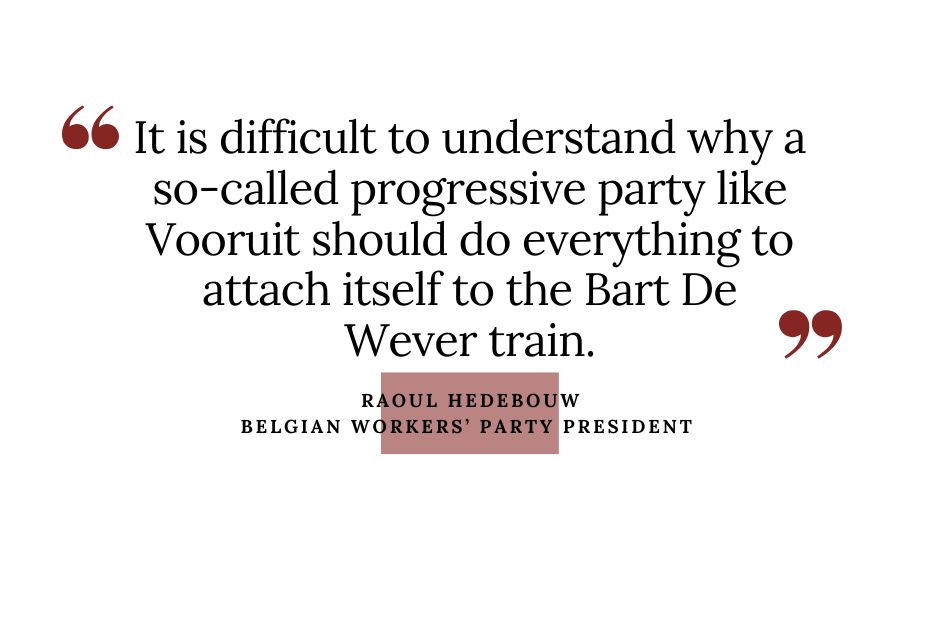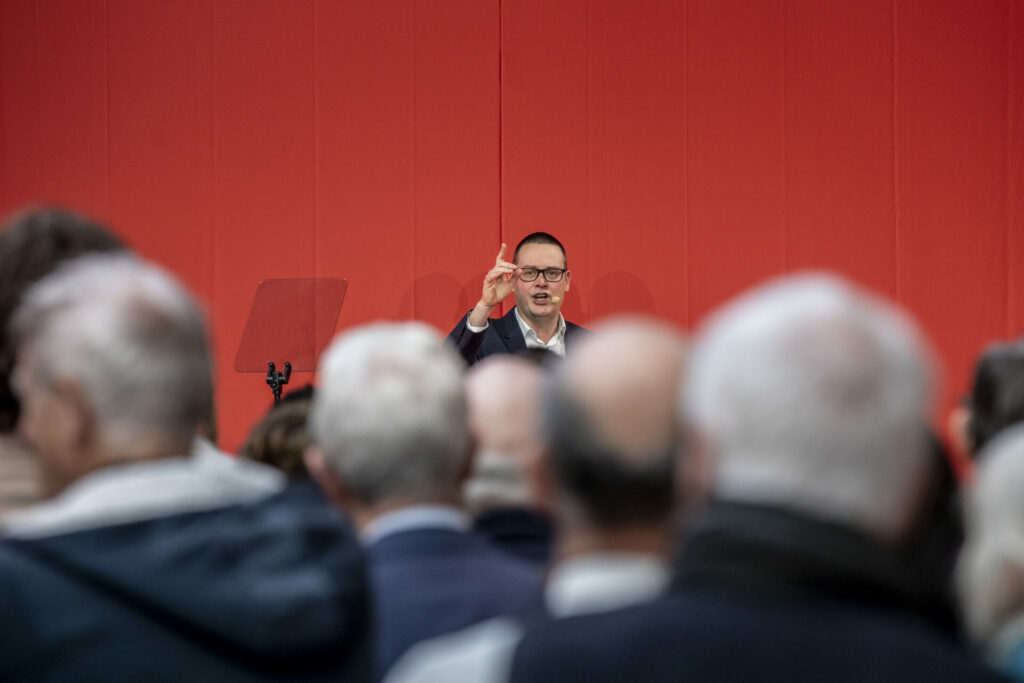With the next Belgian Federal elections on the political horizon, the leftwing Belgian Workers’ Party (PTB/PVDA) is targeting an electoral breakthrough in Flanders. Currently, the party controls two Flemish municipalities, Zelzate and Borgerhout. It hopes to replicate its "successful" policies in other areas.
“We need more Zelzate and Borgerhout,” party president Raoul Hedebouw announced during a New Year’s reception in the Brussels municipality of Anderlecht. He praised a number of projects carried out by the party in East Flanders and the district of Antwerp.
In his speech, the leader of Belgium’s only fully national party attacked the president of the New Flemish Alliance (N-VA) party and mayor of Antwerp, Bart de Wever, who he alleges is planning an alliance in 2024 with Conner Rousseau’s Flemish left-wing party, Vooruit.
“In Zelzate and Borgerhout, the Robin Hoods of Belgian politics are at work. Bart De Wever fears that these models will become fashionable and will be rolled out across the country. In 2024, more and more people will see our warm politics as an alternative to the cold austerity of the N-VA,” Hedebouw said.
Political inroads
The PTB claims to have 24,000 members across the country and has made significant inroads into Belgian politics over the last decade. The party’s federal growth share has increased from 1.6% in 2010 (101,088 votes) to 8.6% in the last elections in 2019 (584,458 votes). It serves as a strong and critical voice within the parliamentary opposition.
Of "fellow" left-wing Flemish party Vooruit, sister party of the French-speaking Socialist Party (PS), Hedebouw was critical and observed a trend for the party's chairman Connor Rousseau to curry favour with those on the political right.
From the opposition, the PTB has enjoyed reasonable success in bending the arm of the ruling Christian Democrats and Flemish (CD&V) coalition into enacting social policies. Hedebouw credits his party with the creation of the government’s “White Coats Fund”, which improves financing for nurses, and also increases to the minimum wage, scrapping the so-called Flemish “Turteltaks” (which made electricity in Flanders more expensive), and lowering VAT on energy.
Hedebouw largely declined to challenge rival French-speaking parties except to denounce the liberalisation of the energy sector and high energy prices, accusing most French-speaking parties of having been the “apostles of neoliberalism.” The PTB claims that it will impose strict caps on energy prices.
PTB and Vlaams Belang – David versus Goliath?
At the New Year’s conference, party officials focussed on topics such as the climate, migration, and anti-racism, alongside promoting the voice of youth activists. Hedebouw evoked the war in Ukraine but declined to make his usual attacks against NATO, instead denouncing “the extension of spheres of influence of imperialist powers.” The party has been often criticised for its stance on Russia’s invasion of Ukraine, which places equal blame on the West’s collective security interests.
The focus of the speech remained clearly directed at the north of Belgium, where the party is hoping to make gains in 2024. According to the latest polling by Le Soir, RTL, and Ipsos, the PTB is currently in 6th place in Flanders, 4th in Brussels, and 3rd in Wallonia.
Related News
- Vlaams Belang spent €20,000 on Facebook ads to incite anti-immigrant sentiments
- A beginner's guide to Belgium's political parties
The PTB commonly appeals to the “anti-establishment” left and youth. Despite this, the PTB’s Flanders election results pale in comparison to results achieved by far-right Vlaams Belang. In terms of social media, the PTB was the third biggest spender overall and the largest left-wing spender, dispensing €446,646 on Facebook and Instagram. By contrast, Vlaams Belang spent over €1 million.
In a comment to Belga News Agency, Hedebouw said that the PTB would be open to greater cooperation with PS in the south of the country, especially at the municipal level. In 2018 and 2019, the PTB’s influence was hindered by its failure to make alliances with other parties at the regional- and city-level.
Despite this, Hedebouw admitted that alliances would be less likely at a federal or regional level. “Realistically, it must be recognised that it would be more difficult because we don’t feel any cracks at this level.”

